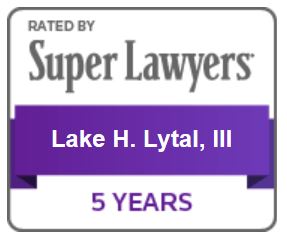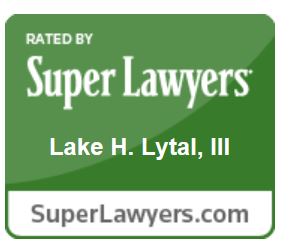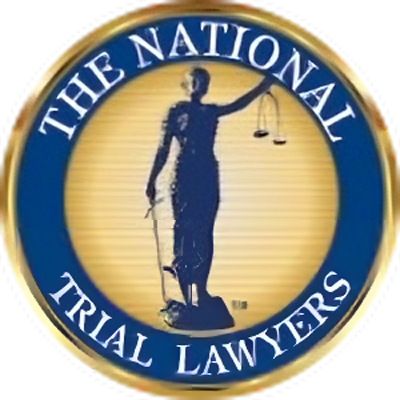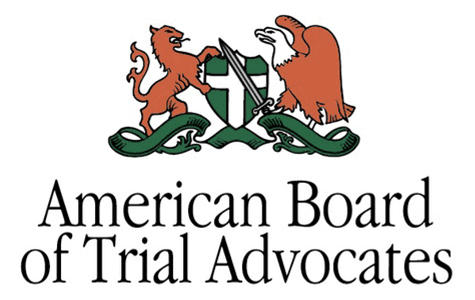As the victim of an accident that wasn’t your fault, you have rights. You have a right to be compensated for the injuries and losses you sustained due to the other person’s negligence. However, when seeking justice, the at-fault party and their insurance provider may stand in your way.
Lytal Reiter Ivey Smith & Fronrath has a team of personal injury lawyers in Fort Lauderdale, FL. that are always ready to help you recover compensation for your damages. We treat each client with the same level of attention and care we would expect if we were facing the same situation ourselves.
We are on your side. Call us today to schedule a free consultation about your case and learn more about how we can help.
How Can Lytal, Reiter, Ivey, Smith & Fronrath Help With My Personal Injury Case?
Personal injury cases are often life-changing events, bringing physical, mental, and financial difficulties. In the aftermath of the accident, it’s important to start working with a personal injury attorney as soon as possible. Here are some of the reasons why you should consider hiring a lawyer for your case:
Legal Knowledge and Expertise
Personal injury attorneys possess specialized knowledge and extensive experience in handling cases like yours. They understand the nuances of personal injury law, including statutes of limitations, liability, and compensation entitlements. Their expertise allows them to assess the strengths and weaknesses of your case, develop effective legal strategies, and advocate on your behalf to maximize your recovery.
Advocacy and Negotiation
Your lawyer will serve as your advocate throughout the legal proceedings, protecting your rights and interests at every stage of the process. They will negotiate with the insurance providers and the defendants to secure a deserved settlement that compensates you for all your injuries, medical expenses, pain and suffering, and other losses. Their negotiation skills and familiarity with insurance tactics enable them to counter offers and pursue the best possible outcome for you.
Investigation and Evidence Gathering: Personal injury attorneys conduct thorough investigations into the circumstances surrounding your case, gathering evidence, interviewing witnesses, and consulting with experts if necessary. They ensure that crucial evidence is preserved and presented effectively to support your claim. By building a strong case on your behalf, attorneys strengthen your position in negotiations and, if needed, in court proceedings.
Legal Representation in Court
While many personal injury cases are resolved through settlement negotiations, some may require litigation. In such instances, having legal representation is invaluable. Attorneys are skilled litigators who are prepared to present your case before a judge and jury, advocating vigorously for your rights and seeking the compensation you deserve. Their courtroom experience and knowledge of procedural rules are essential for navigating the complexities of trial proceedings.
Peace of Mind
Hiring a personal injury attorney removes the burden of navigating various legal complexities and allows you to focus on your recovery and well-being. Knowing that you have a dedicated advocate fighting for your interests can provide peace of mind during a challenging time. Additionally, these lawyers will typically serve you under a contingency fee arrangement, which indicates they will only receive their pay (for handling your case) if they recover compensation on your behalf. This helps make legal representation accessible even if you’re worried about your finances.
Working with an experienced personal injury attorney increases your chances of achieving a favorable outcome and obtaining the maximum compensation available for your injuries and losses. Our personal injury lawyers are well-respected and can help make sure you’re fully compensated for your injuries.
How Much Does it Cost to Hire a Personal Injury Lawyer?
Like many others, our personal injury lawyers represent clients on a contingency fee basis. So, as our client, you don’t need to pay us by the hour. Instead, you only need to pay us a percentage of the money we recover on your behalf after settlement or trial.
In case we don’t win the case, then you don’t owe us any fees. The contingency fee arrangement essentially makes it easier for injured victims to obtain professional legal help. Plus, there is an incentive for the lawyers to only handle cases they know they can win, as they wouldn’t want to invest their resources for no compensation if they lose.
Learn More: The Importance of Reviews When Choosing a Lawyer
What Should I Do After a Personal Injury?
The following are the steps to take after a personal injury to protect your health and increase your chances of receiving maximum compensation for your injuries and damages.
Call the Police
No matter the kind of accident you were injured in, you should call the police so that an official report is taken and filed. Make sure that a formal report is filed, detailing the circumstances of the incident. Obtaining a copy of this report is essential as it serves as a foundational document for any subsequent personal injury claim you may pursue.
Do Not Admit Fault
Some people’s first reaction in a stressful situation is to apologize, even when it’s not their fault. Resist the urge to apologize or admit fault, even if you feel pressured to do so. Such admissions can be misconstrued and used against you during negotiations or legal proceedings. It’s essential to remain factual when discussing the incident, avoiding any statements that could be interpreted as an admission of guilt.
Document the Scene
It’s important to thoroughly document the scene of the incident and its aftermath. This will be super helpful when building a strong case. Take as many videos and pictures of the scene of the accident as possible. Capture everything that might be relevant to the case, including the injuries you suffered. Keep capturing their progress to document how they’ve progressed over time.
Take detailed notes, including the time, date, location, weather conditions, and any witnesses present. Describe what happened before, during, and after the incident, as well as any conversations that took place. These details can provide valuable evidence to support your claim.
Get Medical Attention
Seeking medical attention promptly after the injury is crucial, even if you believe your injuries are minor. Visiting a healthcare professional ensures that your injuries are properly assessed and treated. Additionally, timely medical care establishes a clear link between your injuries and the incident, strengthening your compensation claim. Never miss your doctor’s appointments or therapy sessions.
Never Talk to Insurance Companies Alone!
Exercise caution when communicating with insurance companies. Refrain from providing detailed statements or discussing your intentions regarding a potential claim without legal guidance. Insurance adjusters may attempt to extract information that could be used against you, so it’s advisable to consult with a personal injury attorney before engaging in such conversations.
Consult a Personal Injury Attorney Near You
Seek legal advice from an experienced personal injury attorney as soon as possible following the accident. A good attorney can provide valuable guidance on your legal options and help you navigate the complexities of the legal process. They’ll work to protect your rights and advocate for fair compensation for your injuries and losses.
How Long do I Have to File a Personal Injury Claim?
In Florida, the statute of limitations for personal injury cases is four years from the date of the accident for claims relating to the injury. As such, you have a 4-year window to bring your lawsuit. Not meeting this deadline could have your case dismissed by the court when you file it. This would essentially prevent you from seeking compensation for your losses through the justice system.
Understanding the implications of the statute of limitations is important for anyone who has suffered any form of personal injury in Florida. Whether the injury resulted from a medical mistake, auto accident, a defective product, or any other incident, it’s important to know how long you have to take action.
Do I Have a Personal Injury Case?
Generally speaking, you may have grounds for a personal injury case if the injuries and/or damages you suffered were directly caused by the negligence and carelessness of another person or entity. However, several other nuances determine whether you have a case you can pursue, including the available evidence, how long ago the incident happened, and how much you contributed to the incident.
Your attorney can objectively review the circumstances of your case let you know whether you have a case and advise you on your legal options. For personal injury cases, proving fault is critical. Without sufficient evidence showing how the other party is responsible for the incident, it can be a challenge to hold them liable.
Learn More: How to Know if You Have a Personal Injury Case?
What is the Personal Injury Claim Process?
File an Insurance Claim
The process starts by opening a claim with your insurance company and the insurer of the party responsible for your injuries. Your personal injury lawyer will guide you through this process and ensure all the paperwork is filed correctly.
Write a Demand Letter
Your lawyer will calculate what they consider the most suitable settlement amount for your case. They will then send a demand letter to the insurance provider demanding payment. The demand letter includes the story that you would present to the court if the case went to trial. It also includes medical records, bills, documentation outlining lost wages, and evidence for other financial losses.
Evaluate Settlement Proposals
A strong and well-thought-out demand package can lead to a quick and favorable settlement agreement where you, the defendant, or their insurance company agree on a compensation amount without going to trial. This will help either side avoid the uncertainties of going to trial.
Attend Settlement Conferences
If needed, your lawyer will attend personal injury settlement conference proceedings. These meetings aim to settle the lawsuit through negotiation rather than going to trial. Once an agreement is reached and signed, the case is resolved without going to trial.
If Necessary, Trial
If no settlement is reached with the defendant, your attorney will file a lawsuit and request a trial. A jury will then listen to your story and the evidence to decide the compensation amount for your financial damages.
How Long Will My Personal Injury Case Take?
How long your case takes will depend on several case-specific aspects, including the severity of your injuries, the legal complexities of the case, the time you need to reach maximum medical improvement, and whether your case settles out of court or goes to trial.
Generally speaking, personal injury cases will take an average of 6 months to 2 or more years to resolve. Your lawyer will be able to give you realistic timelines of how long your case might take based on your circumstances.
Will I Have to Go to Trial?
While some cases do go to trial, the vast majority of personal injury cases will settle out of court. Your lawyer will work on your behalf to negotiate the best possible settlement based on your injuries and the long-term implications of the incident. However, it will be ultimately up to you to accept a settlement or have your case go to trial.
Learn More: Will My Personal Injury Case Go to Trial?
How Much is My Case Worth?
To calculate the true value of your personal injury case, you should consult with a skilled personal injury lawyer near you and provide them with the details of your case. An experienced injury attorney can assess your losses and approximate the likelihood of recovering compensation for them. They will also evaluate who will be found negligent and determine liability in the case and the extent to which you bear responsibility for the incident.
How is Negligence Determined in a Personal Injury Case?
In personal injury cases, determining who is at fault for the accident and thus liable for paying the damages is based on the concept of negligence. Negligence is defined as failure to act with a level of care that a reasonable person would have under the same circumstances. If a person causes harm through negligence, they can be held liable for the resulting injuries and damages.
The following are the four elements of negligence that you need to prove to recover damages from the at-fault party:
Duty of Care
You need to demonstrate how the defendant owed you a duty of care. In most personal injury cases, this is quite a straightforward process as most people usually have a duty of care towards others. For example, if you were injured in a vehicle accident, your lawyer will argue that all motorists share a common duty of care- to follow traffic rules and act in a reasonable manner.
Similarly, landlords and property managers have a duty of care to ensure the safety of anyone legally present on their premises. Product manufacturers have a duty of care to uphold high safety standards for reasonable uses of their products.
Breach of Duty
It’s not enough to demonstrate the defendant owed you a duty of care. You also need to show that this duty was violated. The nature of the breach can vary depending on the circumstances. For instance, a motorist failing to signal while changing lanes or a doctor proceeding with treatment without obtaining patient consent both constitute breaches of duty, which could deem the responsible party potentially liable for negligence.
Causation
Following the demonstration of a breach of duty of care, the next step is establishing a causal link between the breach of duty and the resulting accident and injuries. While proving causation can sometimes be the most difficult step, it is generally straightforward when a breach of duty is evident.
However, complexities could arise if the plaintiff shares responsibility for the incident with the defendant or other parties. Seeking legal guidance from a personal injury attorney is advisable to navigate these complexities and safeguard your right to compensation.
Damages
The final step in establishing negligence involves demonstrating that there were monetary losses incurred due to the injuries and subsequent recovery process from the incident. This step solidifies the connection between the defendant’s breach of duty and the harm suffered by the plaintiff.
How Do You Prove Negligence?
Proving negligence can be difficult in personal injury cases. You need to work with your attorney to collect as much evidence as possible to prove your case. Each case is different and will have different potential complications. Nonetheless, the following are the kinds of evidence that could help you prove negligence on the defendant’s part and help your claim:
- Photographs and dash-cam footage of the scene of the accident
- Police reports and accident reports
- Surveillance footage
- Training and safety records
- Eye witness statements
- Medical records
- Mobile device data records
- Employment records
- Vehicle data recorder information
These kinds of evidence might still not be enough to prove liability on their own. In some cases, you will need to hire experts such as accident reconstructionist to help strengthen your claim. Your lawyer will be able to tell you the kinds of evidence you need to build a strong case.
Florida and Comparative Fault
In Florida, which operates under a modified comparative negligence, the compensation amount is proportionally reduced if the plaintiff is found partially at fault for the incident. For instance, if you’re found to be 20% responsible for the accident, you are eligible to only recover 80% of the damages in your lawsuit. But if your percentage of fault is more than 50%, then you might be unable to recover any damages.
What Type of Damages Are Recoverable?
Florida law allows injured victims to recover compensation damages in the form of economic and non-economic damages. In some cases, punitive damages may be awarded.
Economic damages
These are meant to compensate the victim for the financial losses they incurred. They are much easier to calculate as they are supported by physical evidence such as receipts, invoices, and other documents. They usually include the following:
- Medical expenses, including future expected expenses
- Lost wages from time spent away from work
- Loss of future earnings and loss of earning capacity
- Property damage
Non-economic damages
These cover all the intangible losses you suffered in the incident. Non-economic damages are highly subjective, meaning they are generally much harder to prove than economic damages. Examples include:
- Pain and suffering
- Mental anguish and emotional distress
- Loss of companionship
- Loss of enjoyment of life
Punitive damages
The court may choose to award punitive damages in cases where the defendant is found to have acted in a way that was too negligent, egregious, or malicious. Punitive damages are meant to deter the members of the public from engaging in such behavior in the future.
Learn More: How Are Personal Injury Settlements Paid Out?
Types of Personal Injury Cases We Handle
-
- Car Accidents: Collisions involving pedestrians, cyclists, and motorcyclists often lead to severe injuries due to the vulnerability of these individuals. Similarly, accidents involving boats, buses, and aircraft can result in devastating consequences.
- Truck Accidents: The sheer size and weight of commercial vehicles make accidents involving them particularly devastating, often resulting in severe or fatal injuries.
- Motorcycle Accidents: Motorcycle accidents are some of the most serious and deadly of all motor vehicle collisions, given the small size of motorcycles compared to other vehicles.
- Medical Malpractice: Holding negligent medical providers accountable for the damages they cause can be quite challenging. Don’t try to do it yourself, contact our team of medical malpractice lawyers today!
- Wrongful Death: This legal term pertains to lawsuits filed when someone has been killed due to another party’s negligence or carelessness.
- Slip & Fall: While accidents happen, if you trip and fall on someone else’s property due to their negligence, you may have grounds for a personal injury lawsuit.
- Premises Liability: Whether it’s a slip and fall or a dog bite if your injury is due to a property owner or manager’s negligence, we’re here to help.
- Product Liability: Defective products pose serious risks, whether at home, in public places, or at work. Improper warnings and misleading manuals can also lead to injuries.
- Nursing Home Abuse: If your loved one has been injured while in the car of a nursing home, or you suspect abuse is occurring, our nursing home abuse lawyers can guide you through the legal options available to seek compensation for your loved ones damages.
We also handle several other types of personal injury cases that are not listed here, like burns and brain injuries. Still, no matter how you or your loved one was injured, our team can evaluate the incident with you in detail during our free consultation session. We’ll then give you a clear assessment of your case, provide you with available legal options, and answer any questions or concerns you may have.
Contact Fort Lauderdale, FL Personal Injury Lawyers Who Care
At Lytal Reiter Ivey Smith & Fronrath, we want to make sure you are properly compensated for your injuries. Contact us today for a compassionate and effective representation by our Fort Lauderdale personal injury lawyers.
We offer a free, no-obligation initial consultation to all of our clients, and you don’t need to pay us anything until we recover compensation for you. Call us now to speak with a skilled Fort Lauderdale personal injury lawyer!
Related articles for further reading
- Contact us
- Will a pre-existing injury affect my personal injury claim?
- Can student loan lenders take my personal injury settlement?
- What are some outdoor grill safety rules in Florida?
- Statute of repose vs. statute of limitations in Florida
- Social media mistakes personal injury plaintiffs should avoid
Resources
- Broward Health Medical Center
- 1600 S Andrews Ave, Fort Lauderdale, FL 33316
- Urgent Care Fort Lauderdale: Dr. G’s Urgent Care
- 5975 N Federal Hwy Suite 107, Fort Lauderdale, FL 33308
- Fort Lauderdale Police Department
- 1300 W Broward Blvd, Fort Lauderdale, FL 33312
- Broward County Clerk of Courts: Home Page
- 201 SE 6th Street. Fort Lauderdale Florida, US 33301
- Best Class Towing LLC
- Fort Lauderdale Collision
- 4561 NW 8th Ave, Oakland Park, FL 33309
Disclaimer: Please note that by providing these links to external websites, we are not endorsing, promoting, or affiliated with the content, products, or services offered by these companies. We cannot guarantee the accuracy, relevance, or reliability of information found on these external websites. Users are advised to exercise caution and discretion when accessing third-party websites, as their terms of use, privacy policies, and practices may differ from ours. We assume no responsibility for damages, losses, or liabilities incurred as a result of visiting or engaging with these external websites linked from our platform.













